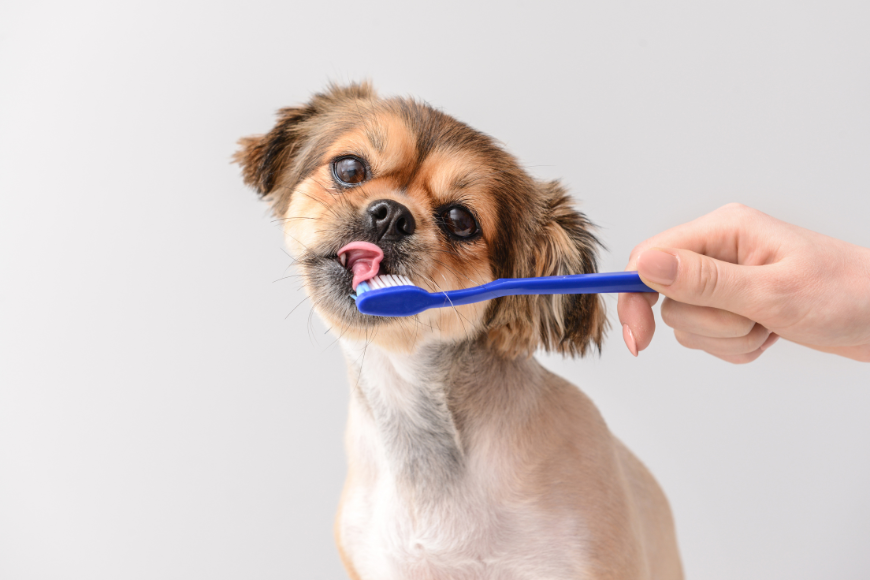Just like humans, our furry friends require regular dental care to maintain a happy and healthy life. Regular dental maintenance is a crucial aspect of their overall well-being, contributing to their comfort, vitality, and longevity.
Understanding the Severity of Dental Issues
At Cascade Veterinary Clinics, we use a comprehensive grading system to evaluate the severity of dental problems in pets, ranging from Grade 1 to Grade 4. This grading system helps us address issues early on and provide tailored solutions for optimal dental health.
- Grade 1: Early Signs
- At this stage, your pet may exhibit mild gingivitis, characterized by slight redness and inflammation of the gums. It’s crucial to address these issues promptly to prevent progression.
- Grade 2: Moderate Gingivitis
- Moderate gingivitis involves more noticeable inflammation and potential plaque buildup. Our veterinarians will recommend a combination of professional cleaning and at-home care to manage the condition.
- Grade 3: Advanced Gingivitis
- This stage signifies advanced gingivitis with evident plaque and tartar accumulation. Treatment may involve a thorough dental cleaning, potential extractions, and a personalized home care plan.
- Grade 4: Severe Periodontal Disease
- Indicative of severe periodontal disease, which can lead to tooth loss and systemic health issues. Intensive dental procedures, such as extractions and oral surgery, may be necessary, along with ongoing home care.
Does Your Cat/Dog’s Breath Smell Worse?
One of the earliest signs of dental problems in pets is often noticeable in their breath. If you’ve noticed a change in your cat or dog’s breath – perhaps it’s become increasingly foul – it could be a red flag for dental issues. Bad breath is often linked to bacterial buildup in the mouth, which, if left untreated, can progress to more severe conditions.
Tips and Tricks for Maintaining Your Pet’s Dental Health:
1. Regular Brushing:
- Just like humans, pets benefit from regular toothbrushing. Use a pet-friendly toothbrush and toothpaste to establish a routine that keeps their teeth clean.
2. Dental Chews and Toys:
- Provide dental chews or toys designed to promote oral health. Chewing helps reduce plaque and tartar buildup while keeping your pet entertained.
3. Professional Dental Cleanings:
- Schedule regular professional dental cleanings with our experienced veterinarians. These cleanings are crucial for addressing issues that may not be visible during at-home care.
4. Balanced Diet:
- A well-balanced diet contributes to overall health, including dental health. Consult with our veterinarians for dietary recommendations that support your pet’s dental well-being.
At Cascade Veterinary Clinics, we emphasize the importance of proactive dental care for your furry companions. By understanding the grading system, detecting early signs, and implementing simple tips and tricks, you can contribute to your pet’s dental health and ensure they enjoy a happy, pain-free life. If you have any concerns or questions about your pet’s dental health, don’t hesitate to reach out to our experienced team at Cascade Veterinary Clinics. Your pet’s radiant smile is our priority!
When you schedule a dental cleaning appointment for your cat or dog during the month of February, you will receive a special 10% discount. This is your opportunity to invest in your pet’s well-being and maintain that radiant smile.
Remember, a brighter smile starts with proactive care – let Cascade Veterinary Clinics be your partner in ensuring your pet’s dental health. We look forward to serving you and your furry family members!

